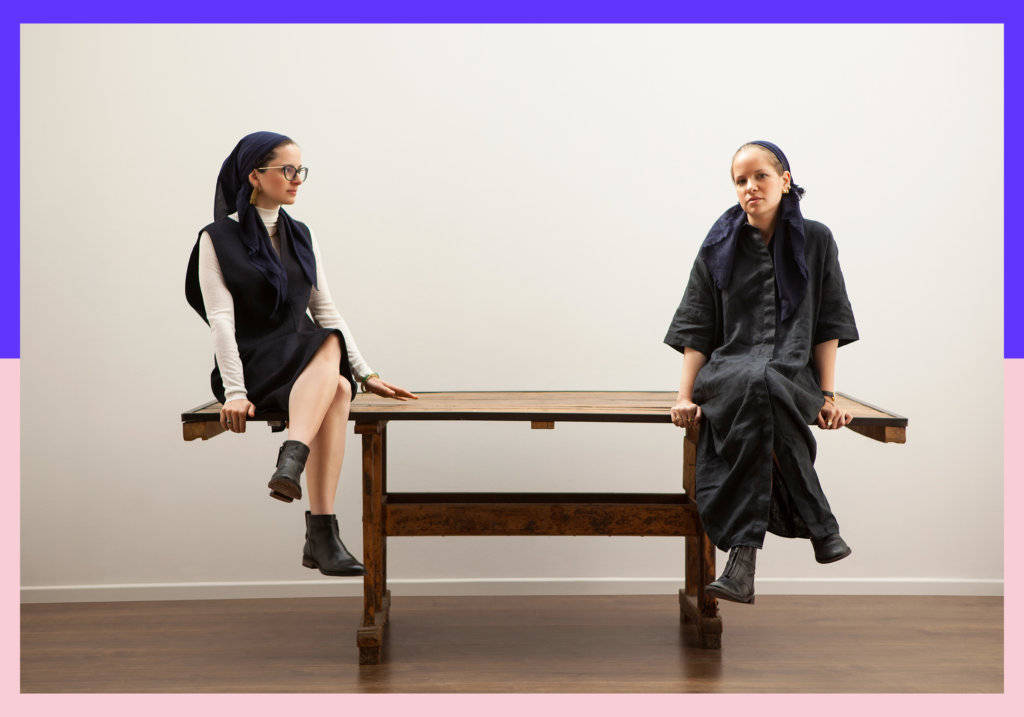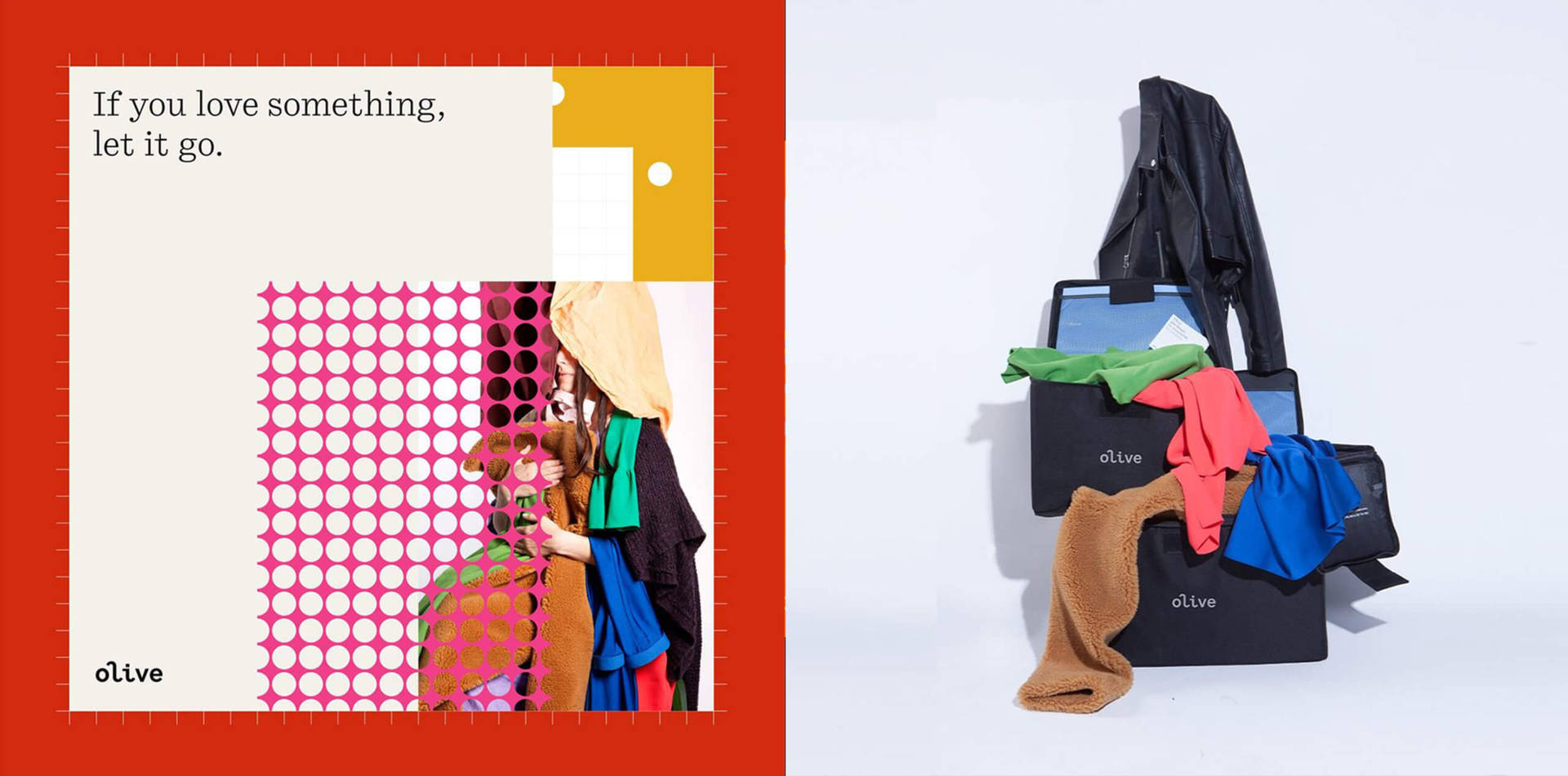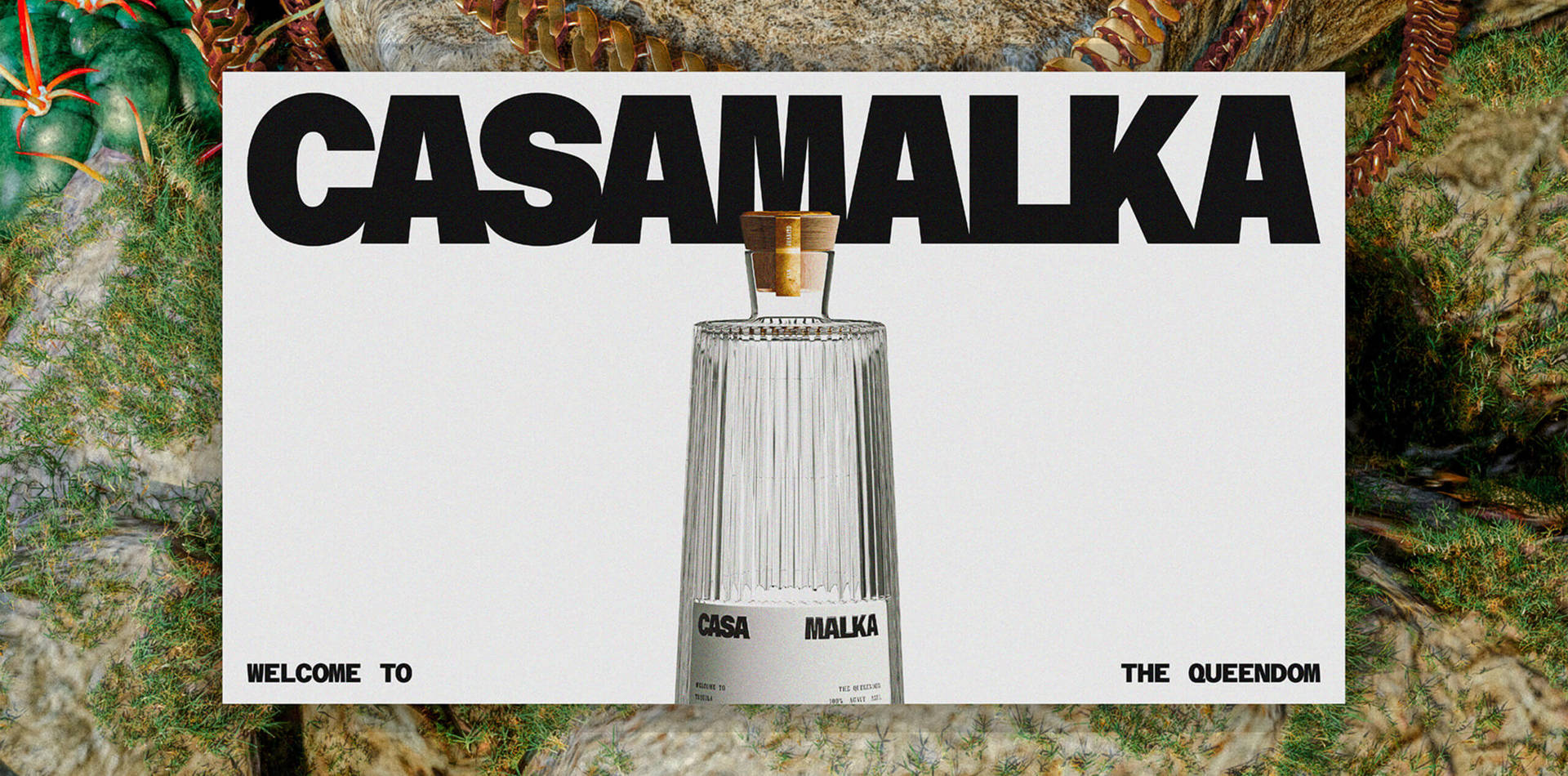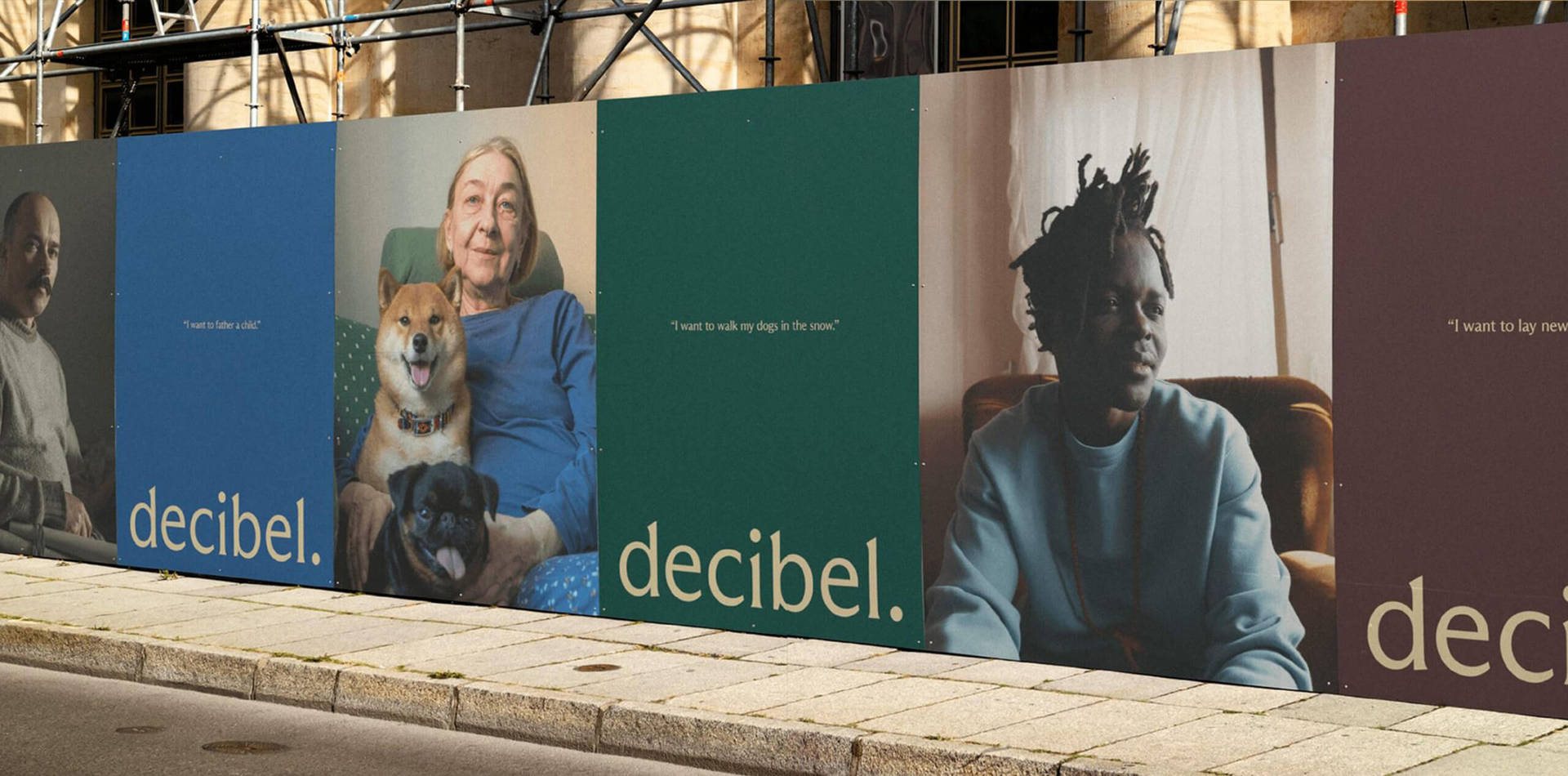Nihilo is an Ohio-based branding agency founded in 2021 by designer Emunah Winer and writer Margaret Kerr-Jarrett. They partner directly with first-to-market and founder-led teams, using strategy, design, and writing as core mediums to evolve and redefine businesses.
The duo did not end up in the creative industry by traditional routes. They consider this an advantage. As they tell us, ‘…neither of us went to design school or worked at a top agency. With this comes a kind of underdog mentality that drives us and our work ethic.’ Two Jewish Women, their first collaboration, was an interactive design and poetry project that combined their design and writing skills with the aim of educating people about Orthodox Jewish women and challenging preconceptions about them. This experience led them to found Nihilo.
The name the Nihilo comes from the ‘Latin term creatio ex nihilo – meaning to create something from nothing.’ Intrinsic to the agency’s creative process is the idea that they ‘need space and emptiness from which a creative idea can emerge. You need to start with nothing to create something.’ They also believe in the idea of ‘creative capital’, meaning that when they take on a new project or client, they look at their work as an ‘investment in their company – not vice versa’. They are only willing to ‘invest’ in businesses they believe in.
It has not been easy building a new agency at the same time as being mothers (with three children each), first in Israel and more recently in Colombus, OH. They have had to overcome many challenges along the way. As they tell DbyW: ‘We exist at the intersection of many communities but do not fully belong to any one of them… Our location, our religion, our lack of typical experience, our gender – these are aspects that [have made] working with us technically more difficult.’ But their outstanding and distinctive work has spoken for itself, and early on they were recognized internationally by The Brand Identity, Brand New Conference 2023 and It’s Nice That! to name just a few.
Nihilo believe that we can help to counteract gender inequality by supporting each other, leaving competitiveness behind, being open to collaboration and voicing your own point of view. As they explain, ‘For a long time we hid behind our work, wanting to keep our “personal backstories” separate. With time we realized that there is no separating them. Moreover, the personal stories are the only ones we have that are uniquely ours. They’re the only ones nobody else can tell. If we won’t tell them, who will?’

We talked with Emunah and Margaret to find out more about their journey building Nihilo to date, challenges they’ve overcome including, how they manage motherhood with running a successful agency, and their advice for women and gender expansive creatives wanting to start their own agency.
What were your first steps into the creative industry and what led you to decide to join forces and start your own creative studio?
We originally met at a now defunct agency in Israel. With time, we both left to work independently, all the while knowing we’d eventually want to do something together. This started with a joint side poetry/design project called Two Jewish Women (still proud) and ultimately resulted in our forming Nihilo. Beyond the serendipity of our meeting when and where we did, we had a lot in common professionally: neither of us had followed the traditional entry into the creative industry, and neither of us went to design school or worked at a top agency. With that came a kind of underdog mentality that drives us and our work ethic.
Can you tell us about your experience founding Nihilo in 2021, how you found clients and any challenges you had to overcome?
As everyone does, we very much underestimated how difficult it would be to build this thing. We were women working in a man’s world, Americans working in an Israeli world, and mothers (of 3 kids each) working in a 12-hour workday hustle world. We truly didn’t fit in anywhere. That being said, our work always spoke for itself, and the larger creative industry recognized us for that early on.
“We were women working in a man’s world, Americans working in an Israeli world, and mothers (of 3 kids each) working in a 12-hour workday hustle world. We truly didn’t fit in anywhere.”
It was more difficult to break through with clients. There were so many barriers to working with us – time zones, cultural differences (most obviously in the form of head scarfs and Sabbath observance), or our isolated location in Israel. But what that meant was that once someone did choose to work with us, it was because they really really wanted to. They recognized in our work and in us something that could help them grow. Then they told others. And it just went on from there.
Where does the name Nihilo come from?
Good question! It comes from the Latin term creatio ex nihilo – to create something from nothing. Intrinsic to our creative process is the idea that we need space and emptiness from which a creative idea can emerge. You need to start with nothing to create something. You can read more about our name here – we wrote a whole article about it!
What is the ethos that defines who you are and differentiates you as a creative studio?
We abide strongly by the idea of creative capital. When we take on a new project or client, we look at our work as an investment in their company – not vice versa. Our work provides real business value to our clients, and to that end, we’re only willing to invest in businesses we believe in.
We also believe in truly respecting the customer, the citizen on the other side of this thing we’re working on. This comes through in the level of craft we infuse into our work. We trust that they will get it and appreciate it. And they do.
“Our work provides real business value to our clients, and to that end, we’re only willing to invest in businesses we believe in.”
How has Nihilo evolved to where you are now and have there been any pivotal projects or key moments?
In the beginning we really wanted to be everything for everyone; we were afraid to say no. Now we’re very clear—we use creative capital to position first-to-market and founder-led companies at the top of their fields.
The most noteworthy example of this, and probably our most widely shared project to date, is our work on the new tequila brand Casa Malka. We were approached with little more than a name and a vague idea and created the brand world from scratch. The concept got so much traction in the design world and beyond that we (now partial owners of the company) were able to secure the support and investment to bring the project to fruition. Casa Malka is launching Q1 of 2024 and is a Nihilo creative capital project at its core.
Another key moment was moving our agency from Israel to Columbus, OH. Moving families across the world is obviously no small endeavor, but for various personal and professional reasons it made the most sense. We have just got here so we don’t have much to report as yet, but we’re excited.
What are the biggest challenges you’ve faced during your careers and how have you overcome them?
We exist at the intersection of many communities but do not fully belong to any one of them. That means we have no low-hanging fruit, no easy “in-network” clients. There are barriers to working with us no matter where you come from. Our location, our religion, our lack of typical experience, our gender – these are things that make working with us technically more difficult. Ultimately, this makes for better clients in the long run because the ones who do work with us truly trust us. They see us for who we are and the kind of work we create and leave any assumptions at the door.
“We exist at the intersection of many communities but do not fully belong to any one of them. That means we have no low-hanging fruit, no easy “in-network” clients. There are barriers to working with us no matter where you come from. Our location, our religion, our lack of typical experience, our gender – these are things that make working with us technically more difficult.”
More personally, Emunah got married at 20, had a baby soon thereafter, and was essentially self-taught. This made the path to success very unclear, so she just kept pushing and pushing until it started to come together. On the other hand, Margaret came from a poetry background. Rather than pursuing an MFA in poetry, she moved to Israel, got married, and also had a baby soon thereafter. There was no “poet in the design industry” position at the time, so she decided to create one. Together we just basically said screw it and made this whole thing up. That’s the only way we survive.
What do your current workdays look like? How much time is spent on the business side and how much on creative direction and writing?
We are big fans of maximum 5-hour workdays. We don’t personally operate at our optimum creative ability for more than that anyway. The business side takes too much time, but so does everything else. We’re ready to hire our first full-time senior designer which is scary but also exciting. If you know anyone excellent…
“We are big fans of maximum 5-hour workdays. We don’t personally operate at our optimum creative ability for more than that anyways.”
How do you manage your work-life balance as mothers running a successful business?
It is truly very very challenging! Scheduling wise there’s just no way around the limits on our availability. School pickup is at 3:30 no matter what. There are no all-nighters because we need to wake up at 6:00am with our kids. That being said, these are exactly the restraints that have made us use our time wisely, choose our clients wisely, and demand that others respect our time as much as we do.
What do you think are the most important qualities for running a creative agency?
We would never choose this industry if we were just out to make money. It can be brutal, so you have to care about the work. The work is a lifeline for us. It’s a major piece in our identity puzzles. We want to make lots of money, but that can’t be the main goal.
You also need thick skin. The amount of rejection is staggering, and we’ve really grown as people through the process of being blown off, told “no”, and enduring a constant barrage of “you girls are so cute” comments.
“You also need thick skin. The amount of rejection is staggering, and we’ve really grown as people through the process of being blown off, told “no”, and enduring a constant barrage of “you girls are so cute” comments.”
Statistics show that only 0.1% of creative agencies worldwide are founded by women, and the numbers are even smaller for women of colour and gender expansive folk. Do you have any thoughts on how we can counteract this imbalance?
We need to support each other. The discrepancies are real, and the only way to bridge those gaps is by lifting each other up. Leave your competitiveness at the door and be open to collaboration with others stuck in the imbalance. Also – and perhaps more importantly – speak your point of view and speak it loudly. For a long time we hid behind our work, wanting to keep our “personal backstories” separate. With time we realized that there is no separating them. Moreover, the personal stories are the only ones we have that are uniquely ours. They’re the only ones nobody else can tell. If we won’t tell them, who will?
“We need to support each other. The discrepancies are real, and the only way to bridge those gaps is by lifting each other up.”
What advice would you give to women and gender expansive creatives who aspire to found and run their own design studio?
Seek out comrades. Our networks, which we mostly initiated over LinkedIn through making pithy comments and saying the occasional smart thing, are everything.
And ultimately, if you want it, you will find a way. We have more obstacles. But because of that, we also have more anger. And that anger turns into fuel. And that fuel lights our fires.
“We have more obstacles. But because of that, we also have more anger. And that anger turns into fuel. And that fuel lights our fires.”








